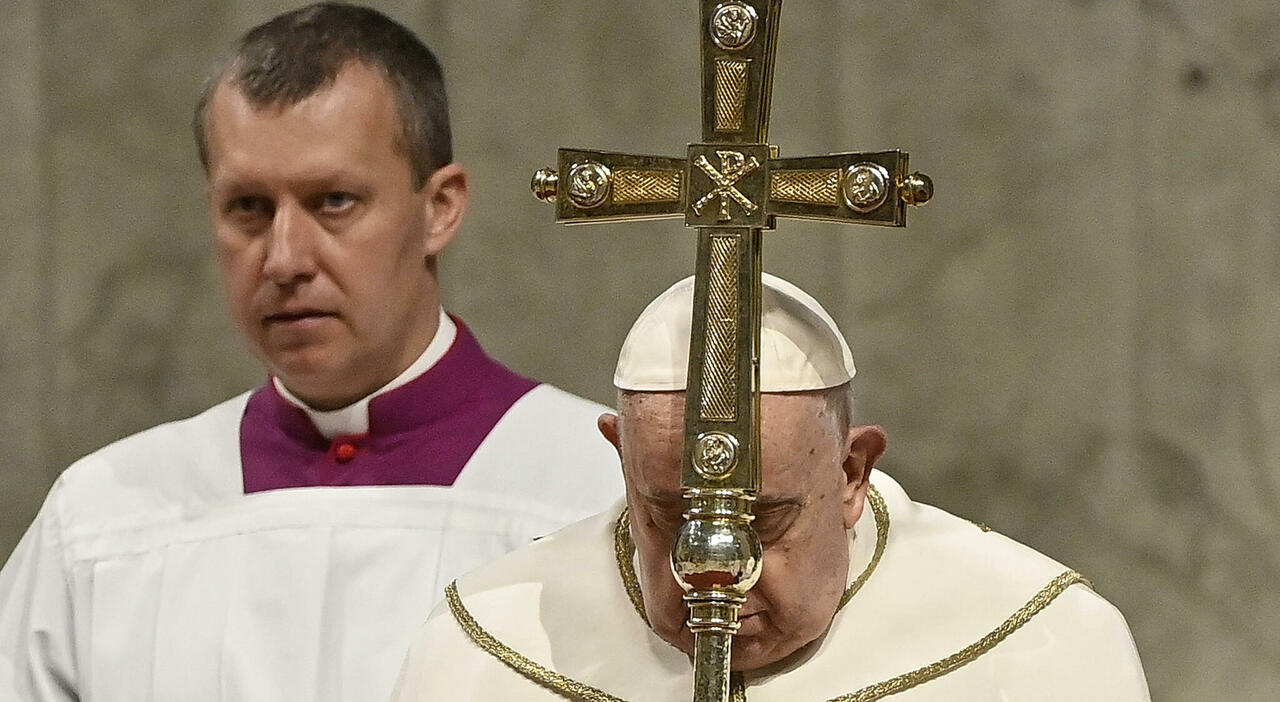Tuesday 26 March 2024, 16:01
Adverse weather, perennial bronchitis, and terrorism alerts do not seem to scare Pope Francis. This year, he has personally written the meditations to be read on Friday evening at the Colosseum for the Way of the Cross. They are titled "In prayer with Jesus on the way of the Cross" and will serve as the common thread through the fourteen stations that recall the Savior's journey on the way to Golgotha. After youths, students, biblical scholars, nuns, bishops, refugees, married couples, and missionaries, this time the texts have been composed by the pontiff himself. A novelty that reveals the deeply "meditative" nature of these spiritual compositions. "It is all focused on what Jesus is experiencing at that moment and it is clear that the reflection extends to the theme of suffering…" explains the Vatican News portal. Bergoglio's choice is linked to the Year of Prayer (2024) as preparation for the Jubilee. Consequently, the reference to current events is less direct than in past years when the Vatican involved protagonists of true human dramas, victims of war, migrants. Unless there are last-minute changes, the Pope's presence at the Palatine is still confirmed despite his fragile health conditions and the weather forecast being quite unfavorable with still chilly temperatures. The Vatican has reiterated that the program remains as announced. "At the current state, there are no changes with respect to what is already planned." Meanwhile, the Cyrenians, the people who will carry the cross during the procession, are still unknown. Certainly, "the people who carry the cross are connected to the reflection at the station." In 2013, for the first Way of the Cross of his pontificate, Francis had entrusted the meditations to a group of Lebanese youths. The following year, the texts were written by Bishop Giancarlo Maria Bregantini, in 2015 by Monsignor Renato Corti, bishop emeritus of Novara, and in 2016, by Cardinal Gualtiero Bassetti, already president of the CEI. In 2017, the Pope chose the French biblical scholar Anne-Marie Pelletier, the first woman to win the Ratzinger Prize. In 2018, the meditations were entrusted to a group of youths coordinated by Andrea Monda, current director of L'Osservatore Romano. Then followed meditations focused on the drama of slavery and human trafficking curated by Sister Eugenia Bonetti, heroic missionary of the Consolata and president of the Association "Slaves no more". In the year of the pandemic, in a desolately empty St. Peter's Square, the meditations were instead signed by the detainees of the "Due Palazzi" prison in Padua. Group meditations also for the following year, 2021, on one side the Agesci and on the other a Roman parish (Santi Martiri di Uganda). In 2022, Pope Francis wanted it to be the family: a couple of spouses and a couple of elderly without children; a large family and one that lost a daughter; a family with a disabled child, consecrated, with a sick parent or that lost a daughter; a missionary family, an adoptive family, a family managing a Family Home, two grandparents, a widow, migrant parents and children, finally two families one Ukrainian and one Russian. This last presence caused a huge political uproar for the choice to have the cross carried by two women, one Ukrainian and one Russian. Finally, last year, the meditations were a collage with texts taken from testimonies collected during apostolic journeys "Voices of peace in a world of war".
© ALL RIGHTS RESERVED
This article is automatically translated
